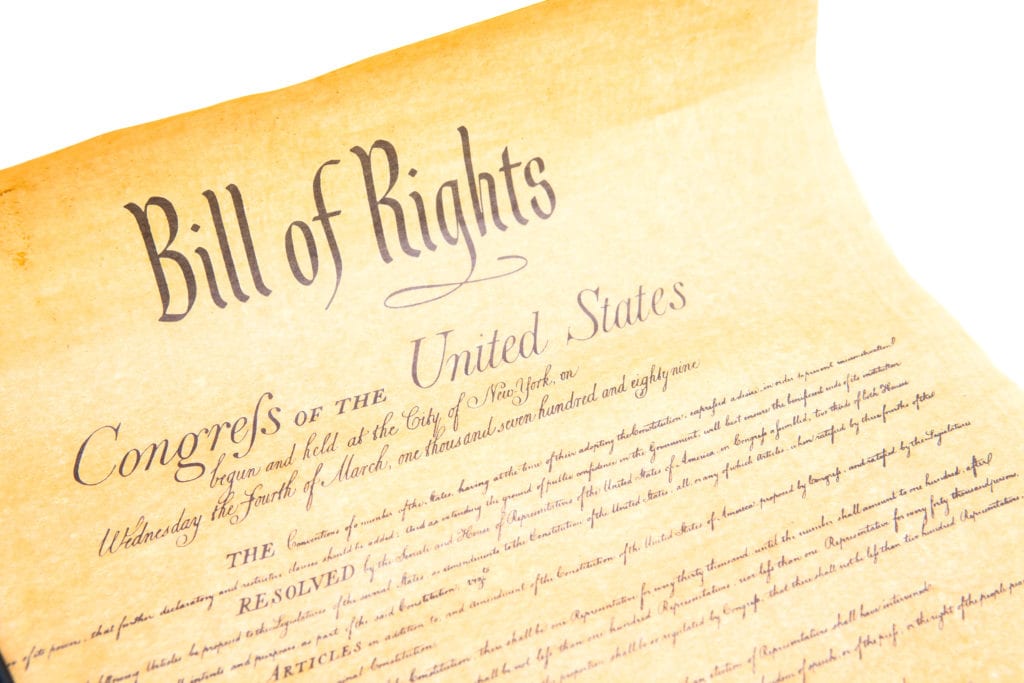The Constitution’s 27 Afterthoughts
Could you pass the 2024 U.S. Citizenship Test? Surveys show that two out of three U.S. citizens cannot! Do you know how many amendments there are? Could you explain the Bill of Rights? The U.S. Citizenship Test includes several questions about the Bill of Rights and important amendments that changed the course of U.S. History. Take our “U.S. History for Citizenship and All Curious Minds” course and learn in 100 minutes all the questions and answers for passing the U.S. Naturalization Test.
There are 27 amendments to the Constitution, which can be viewed here. Article V of the Constitution established the procedures for amending, or “adding to,” the Constitution. James Madison wrote the first 10 amendments to the Constitution, which started out as 17 proposed amendments but were reduced to 12 for the states for consider. Ten were adopted, and those first 10 amendments are called “The Bill of Rights.”
The Bill of Rights include the 1st Amendment that protects the freedoms of speech, press, religion, assembly, and redress of grievances; the 2nd Amendment that gives the right to citizens to own guns; and the 5th Amendment that provides for “due process” and for the right to remain silent in a criminal prosecution, which many people see on TV shows like “Law and Order.”

The 14th Amendment was one of three amendments added to the Constitution after the Civil War (1861-1865). The 13th Amendment formally banned slavery, though President Abraham Lincoln had freed the slaves with his Emancipation Proclamation in 1863, two years before he ended the Civil War, facts the 2021 U.S. Citizenship test addresses. The 14th Amendment gave freed slaves “equal protection under the law” and established “birthright citizenship.” And the 15th Amendment gave freed black men the right to vote, also something the U.S. Citizenship Test addresses.
But from the late 1860s until the mid-1960s, many black Americans and people of color were denied basic civil rights like voting without discrimination, and this led in the 1950s and 1960s to the Civil Rights Movement, led by Dr. Martin Luther King, Jr. A result of the movement was the 24th Amendment that banned poll taxes. A candidate for U.S. citizenship could be asked about the civil rights movement or Dr. Martin Luther King, Jr. in their citizenship interview.
Lyndon Johnson was the President when the 24th Amendment was passed. As Vice-President, he became President after President John F. Kennedy was assassinated in 1963 in Dallas. That brought about concern about what would happen if the President and Vice President were either killed or became “disabled” (example, “mentally unfit”) and unable to do their jobs. That led to the 25th Amendment, which spells out who becomes President under certain circumstances. It deals with the Executive Branch, but there are three branches of government, per the Constitution and the U.S. And the Founding Fathers set them up to provide “checks and balances” on each other.
To learn about the amendments and more that covers U.S. Citizenship 2021 Test material, sign up for our “US History for Citizenship and All Curious Minds” course, a series of 12 interactive videos that helps prepare people for citizenship and educates others who are curious about U.S history and government. Enjoy feeling informed and knowledgeable when you can score at least 80 on our course and practice test!
